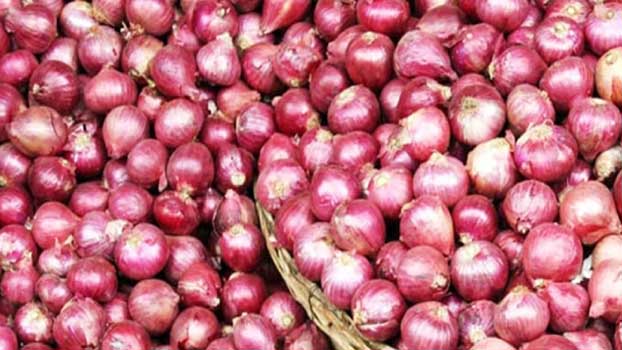BD to attain onion autarky

The government has adopted a special strategy to achieve self-sufficiency in onion production within next two years, said official sources.
As per the strategy, the country no more would import onion, rather would export to different countries by increasing its production, they said.
The sources said following the directives from the Prime Minister’s Office (PMO), the ministries of commerce, agriculture and finance have taken a coordinated initiative in this regard.
PMO sources said, at the special directives of the Prime Minister Sheikh Hasina, the Ministry of Commerce has outlined a strategy to become self-sufficient in onion production. Later it was sent to the Ministry of Agriculture. As it requires money for the implementation of the strategy, the Ministry of Finance has also been added to the initiative. The strategy document would be sent to the PMO soon for final approval.
According to officials, the strategy includes increasing supply of seeds, cultivable land, building more cold storages for preservation, ensuring of fare prices to farmers and proper marketing and intensify research activities on onion production during the summer.
They said, as per the strategy, special plans have been taken for four districts rich in onion productions. Farmers of these districts will get special subsidy for buying seeds, fertilizers and pesticides. The central bank will also launch a program called ‘Onion Loan’ for branding.
Under this program, the government will provide low interest loans to farmers on easy terms from local branches of Krishi Bank. Work has already started to implement it from the next season.
It should be mentioned that about Tk 2,000 crore is spent on importing onion every year. But, if half of the import expenditure is spent on increasing production in the country, more exports could be possible by overcoming the onion crisis.
Commerce Secretary, Md. Zafar Uddin said that work has already started to make self-sufficient in onion production within the next two years. A strategy has been formulated by the Ministry of Commerce. Although the Ministry of Commerce acts as the focal ministry, it also includes the Ministry of Agriculture and Finance.
He said that as onion is an agricultural product, the Ministry of Agriculture will do the main work to increase its production. Besides, the Ministry of Commerce has the role for its marketing, it has taken the initiative to formulate the new strategy on onion production.
“Problems in onion production, shortage and marketing have been identified. Now it is the time for finding a solution. I hope onion production will increase from next season,” the Commerce Secretary said.
It should be mentioned that the onion market has become volatile since India announced a halt in its export. In the current market, per kg local onion is being sold between Tk 90 and 100. Last year, per KG onion was sold at Tk 300.
In this circumstance, the government allowed onion imports from 11 countries, including Turkey, Egypt and the Netherlands, as alternative markets to India to handle the market situation. But even then,onion pricesarestill not stable.
Experts say that about 57 percent of the total demand for onions in Bangladesh is produced in the country. The rest has to be imported, mainly from India. For this reason, any decision taken by India on onion has an impact on the market of Bangladesh.
According to the Bangladesh Agricultural Extension Department, the demand for onions is around 30 lakh tons per year. This year onion production was 25,56,000 tons. However, an average of 25 to 30 percent of the production is damaged due to preservation failure. As a result, the total production of onion in the country stands at 18 to 19 lakh tons. Therefore, the country has to import about 11 lakh tons of onions.





